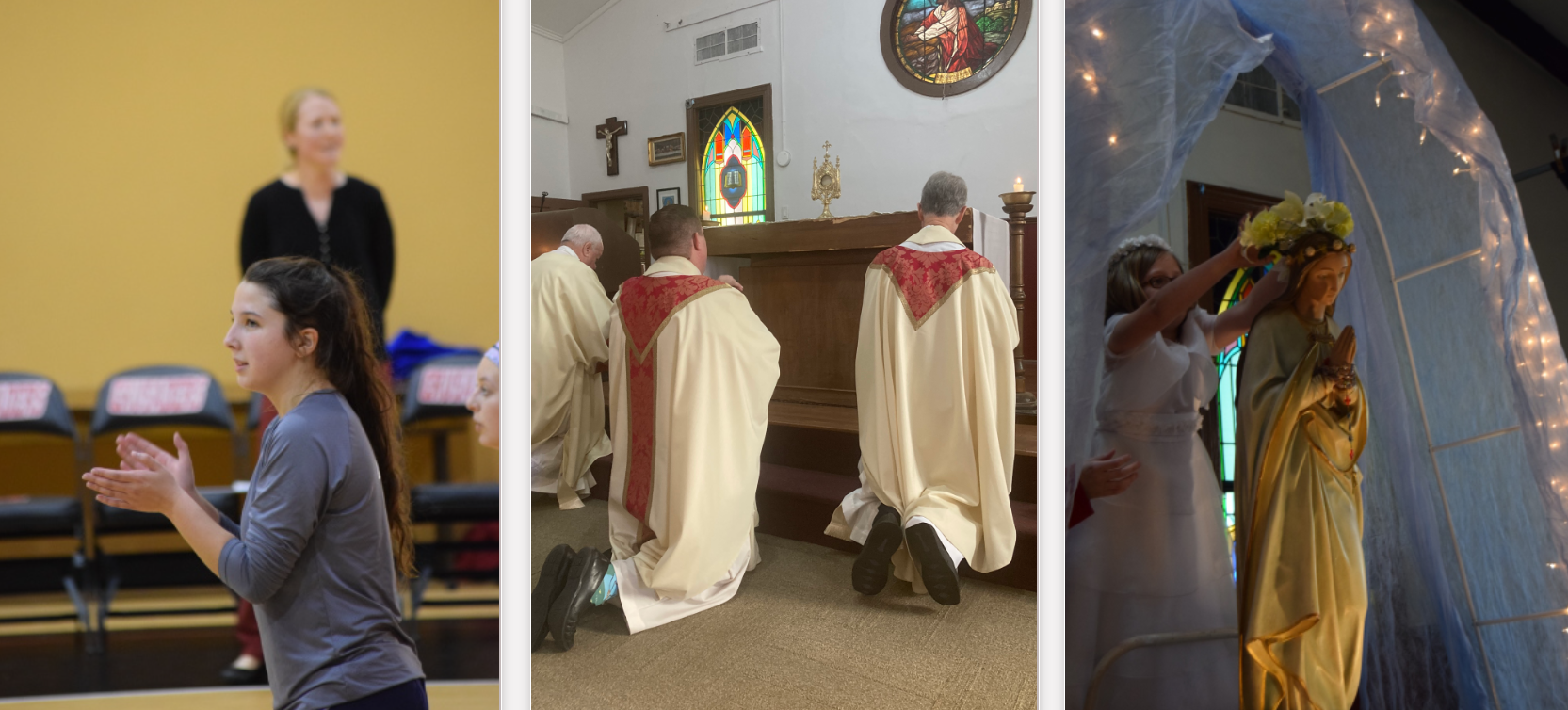
The Faith gives light, direction, and meaning to all that men do.
Our Philosophy
Aquinas Academy is a small independent day school and homeschool support program for students in grades K through 12 providing the foundation for Catholic liberal arts education. The foundation itself is Catholic because the Faith, mediated by the Magisterium of the Church, gives light, direction and meaning to all that men do. True liberal arts education gives the shape and form to this foundation. Liberal arts education is simply the cultivation of the intellect, cultivation of both true knowledge and sound habits of mind. The foundation, then, will be characterized by three essential parts of all education: ordered basic knowledge, basic skills or tools of learning and the habitual vision of greatness.
Ordered basic knowledge is the knowledge most worth having. It is the knowledge of God and His revelation (theology), what He has made and holds in His material creation (natural sciences and mathematics), and knowledge of God’s special creation, man, in his love for the truth (philosophy) and achievements (history and culture).
Basic skills of learning are necessary to enable students to learn efficiently while in school, but perhaps more important, to continue to educate themselves throughout life. These include the ability to listen attentively, to speak clearly, to stick to the point cogently, to write effectively, and to read perceptively and critically. In addition, they include competency in straight thinking, in mathematical computation and in a reading knowledge in at least one language other than English. These basic skills will include some proficiency in the making of beautiful things (fine arts: drawing, painting, music and drama). Finally, they will encompass a developing proficiency in the reflective habits of mind necessary for considered judgment and charitable behavior in a civilizing community.
The habitual vision of greatness, a third essential of learning, is the constant vision of what with the grace of God is possible not only in this life but also in the next. This entails the development of the moral imagination, of worthy hopes, of ideals and character. It is the development of personal norms derived from familiarity with the very best in what is good, true and beautiful. This vision of greatness is, of course, first personified in Christ and his Great Action celebrated in the Divine Liturgy and the life of the Sacraments. It is then mirrored and exemplified in the noble thoughts, words, deeds and very lives of the great men and women who love God and neighbor.
The Academy acknowledges that parents with their special grace of state are the first and foremost educators of their own children. They work mutually to support and complement this solemn privilege. Families are invited to participate however they can, in activities and lectures as well as in occasional conferences at the school.
Aquinas Academy methodology is modeled after its patron saints, St. Thomas Aquinas and St. John Bosco. St. Thomas, Angelic Doctor and one of the greatest intellectual figures in the history of the world and the Church, taught concepts that are accurate, using methods that are simple and language that is readily understandable, and present catechetical instruction that is clear and timeless. St. John Bosco’s educational methods regard students as children of God and having infinite value. The student’s educational and character formation must be personalized using charity and love.
It is the deliberate intention of the Academy to teach the faith not as an independent course within the school day, but as the Vatican II councilor document on Christian Education, Gravissumum Educationis, states: “to relate all of human culture to the good news of salvation so that the light of the faith will illumine everything that the students will gradually come to learn about the world, about life, and about the human person.”
